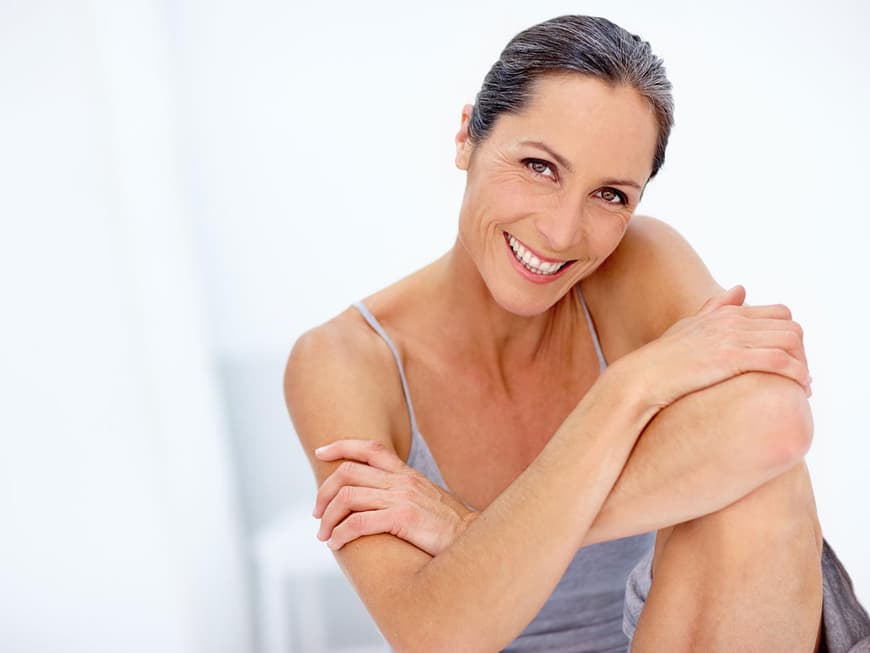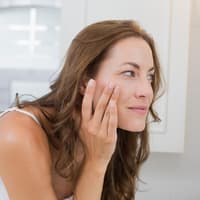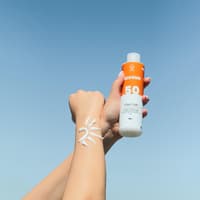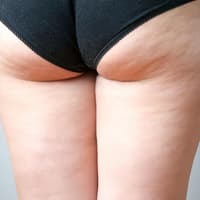
It protects us from heat, cold, bacteria and other pathogens from the outside. From the inside, on the other hand, it ensures that we do not overheat: When it is warm, the blood vessels expand to release the heat to the outside via the skin, and when it is cold, the vessels contract to keep the heat inside the body. It is our largest organ with a surface area of around two square meters and weighs three and a half to ten kilos - depending on body size. The skin makes up 16 percent of our body weight. It is just 0.05 millimetres thick on the eyelids and around four millimetres thick on the soles of the feet and palms of the hands. We lose 30,000 to 40,000 skin cells every minute, and their lifespan is around four weeks. Over the years, fewer and fewer cells are lost, which is why the skin appears thinner and more wrinkled. But there is a lot we can do to look after this important organ as well as possible.
Protect yourself from UV rays
Too much sun is the biggest factor in skin ageing and skin cancer. Doctors have been warning for years: The skin forgets nothing! Every sunburn increases the risk of developing white or black skin cancer later on. If left untreated, the latter, known as malignant melanoma, is the most dangerous cancer of all. The good news is that if detected early, the cancer can be cured almost 100 percent of the time. This is why regular check-ups are so important: from the age of 35, health insurance pays for a thorough skin cancer screening every two years.
Relaxation exercises to combat everyday stress
We all have stress these days. And it gets under the skin: the stress hormone cortisol makes the complexion look pale and lifeless, it prevents water from being retained, so the skin dries out more quickly. Stress also boosts sebum production. The pores become clogged and pimples and blackheads appear. Autogenic training or Jacobson relaxation exercises help to relax and reduce stress.
Don't apply too much cream
Less is more - even when it comes to skin care. Pimples, blackheads and redness are not always caused by an allergy to an active ingredient in the cream. It can also simply be that you are doing too much of a good thing and using an overdose of different products for your skin - which do it no good at all. Showering or bathing too often is also harmful - especially if you also use soap or shower gel. The skin becomes dry and reacts with itching and redness. Dermatologists recommend skipping creams altogether if you are over-caring for your skin and only showering every two to three days.
Get enough sleep
People need their beauty sleep. Without it, the skin looks pale and lifeless. In addition, the eyes are puffy and dark circles form. The ageing process is also accelerated because the production of the stress hormone cortisol increases, which causes collagen to break down. Experts recommend six to eight hours of sleep per night.
Fend off attacks by free radicals
Free radicals are produced by sunlight, ozone, nicotine, stress or alcohol. And they are very bad for the skin. Vitamins A, C, E, flavonoids and trace elements in fruit and vegetables can render free radicals harmless. Blue fruit such as blackcurrants, blueberries and blackberries are good sources.
Cleanse your face thoroughly
Dermatologists recommend this: In the evening before going to bed, your face should be thoroughly cleansed of make-up and dust. Because if you don't do this, your pores become clogged, your skin reddens and you develop spots and blackheads. The toner should be toning, as this regenerates the skin's pH value.
A dermatologist would avoid this
Personal answers from Munich-based dermatologist Prof. Sabine Plötz to the most important questions about our skin.
Going to the solarium
Although UVA light tans the skin, it can damage the collagen in deeper layers of connective tissue. There are, however, UVA applications for inflammatory skin conditions such as acne and rosacea, but these are carried out under medical supervision.
Creams containing silicone
These creams form a protective film on the skin that repels water. This allows active ingredients to penetrate better. However, because this silicone cover also makes it harder for water to evaporate, application can easily lead to skin inflammation.
Using ointment for other purposes
Many women use hemorrhoid creams for the eye area in the belief that they will reduce wrinkles and reduce swelling. These creams are not recommended as they can cause serious allergies. They dry out the skin and make it flaky. What's more, they don't help at all against wrinkles and bags under the eyes.
Sponges for the face
Soft sponges are good for cleansing the face, but as they quickly become highly contaminated with germs, they themselves need regular, thorough cleaning. And they need to be replaced often.
Chemical scrubs
These at-home peels are available for different skin types and are therefore effective in different ways. If used incorrectly, they can severely damage the skin's acid mantle and cause redness. I would have a dermatologist perform such a peeling.
Low protection factor
You should apply at least SPF 20 to your face in both summer and winter. I would never leave the house without sun protection factor.
You might also be interested in this:






